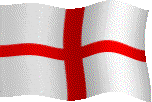Encyclopédie Marikavel-Jean-Claude-EVEN/Encyclopaedia/Enciclopedia/Enzyklopädie/egkuklopaideia

England Bro-Saoz |
blason ou logo en attente |
Cumberland
|
Brough
Crococalana
| page ouverte le 16.10.2004 |
|
dernière mise à jour :
28/05/2012 10:48:03 |
![]()
|
Définition : ville d'Angleterre; comté de Nottinghamshire; ancienne station romaine Crococalana
|
|
|
Extrait de la carte Map of Roman Britain, de Ordnance Survey |
![]()
|
Histoire : Crococalana / Brough se trouve sur la Fosse Way, au sud-ouest de Lindum / Lincoln en direction de Ratae / Leicester, ce qui tend à placer sa création au moment de la construction de cette route, entre 50 et 60 après J-C. |
![]()
|
Étymologie : A. .Crococalana : * Rivet & Smith, Place-Names of Roman Britain, p 327 : - Itinéraire d'Antonin, 477-8 (Iter VI) : CROCOCALANA; variante CROCAOCALANA idem, 478-11 (Iter VIII) : CROCOCALANO; variante ALANO. DERIVATION. Jackson in Britannia, I (1970), 71, was tempted by an emendation *Crocco-calona 'loud-calling one', a river-name transferred to a settlement, formed from British *crocco- (Welsh croch 'loud') and *cal- 'to cal!', with *-on-a suffixes; but this seemed to require too much emendation, and he settled finally on a first clément from British *croco-, older *crouco- (Welsh crug; Cornish cruc; Irish crùach, etc.), all meaning 'hill, mound; heap, stack; tumulus.' He noted, however, that this does not make good sense in composition with *calona. We can be confident about *croco- 'tumulus' from related names; in Britain Croucincum, Pennocrucium ; abroad Crocium > Cruis (Basses-Alpes, France: HolderIi. 1173), KpouKiatonnon (Ptolemy il, 8,2; = Crouciaconnum of TP) now perhaps Carentan (Manche, France), Eliocroca AI 4016 perhaps > Lorca (Murcia, Spain), etc. A second-century graffito Ad Craucinam at La Graufesenque may contain this word (REA, LXXVI (1974), 269), though R. Marichal dérives the name from a root *crau 'pierre', following Dauzat. A deity Crougin-Toudadigoe (dat.) is recorded in CIL n. 2565, from N.W. Spain. The three British names show, if they can be trusted to this extent, différent stages of the adoption into Latin usage of original British ou, which in British became o by the late first century anduû by the end of the third; so that Croucincum records the oldest stage, Crococalana the intermediate, and Pennocrucium the latest (LHEB 37,313).
***** B. Brough : |
![]()
|
Blason : |
|
![]()
|
Sources : - Eilert Ekwall : The concise Oxford Dictionary of English Place-Names. 4è édition. Clarendon Press. 1936-1980. -A.L.F Rivet & Colin Smith : The Place-Names of Roman Britain. Batsford Ltd. 1979_1982 |
![]()
|
Liens électroniques des sites Internet traitant de Brough / Crococalana : * lien communal officiel : |
![]()